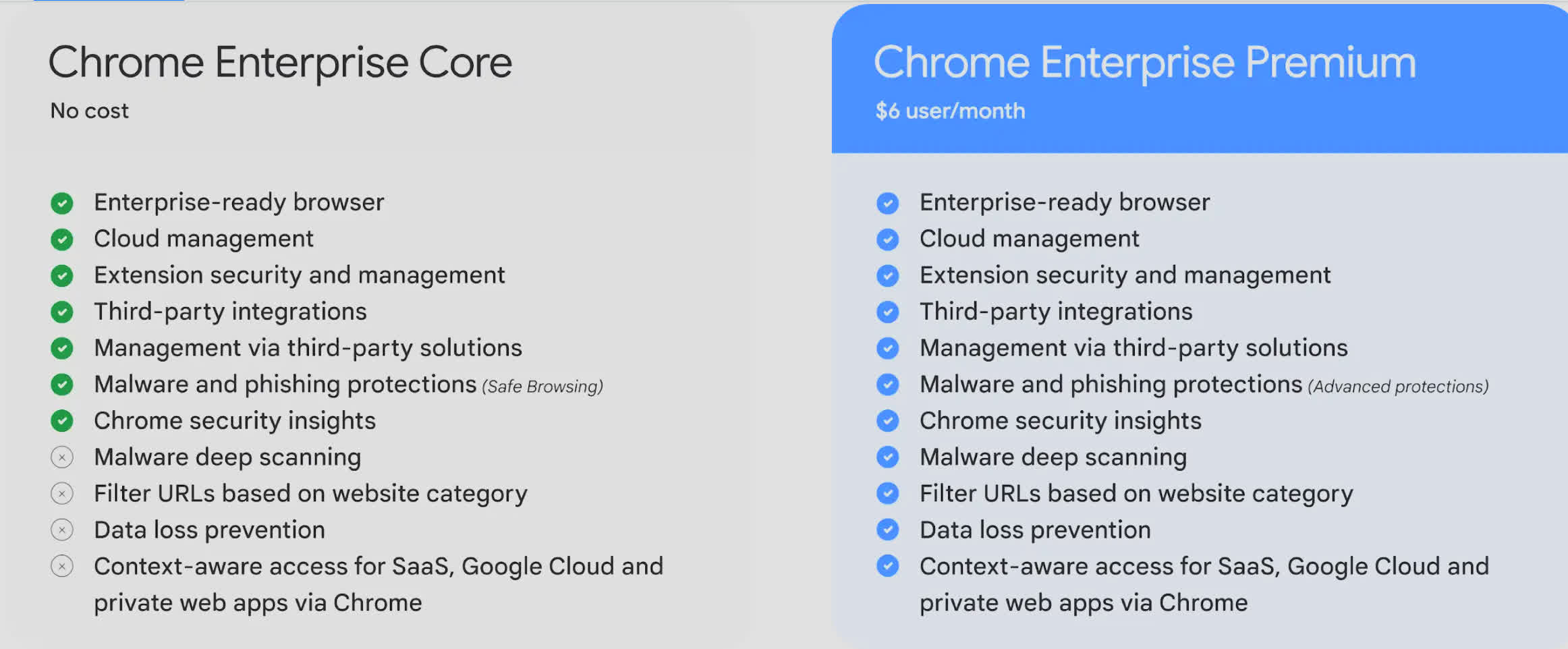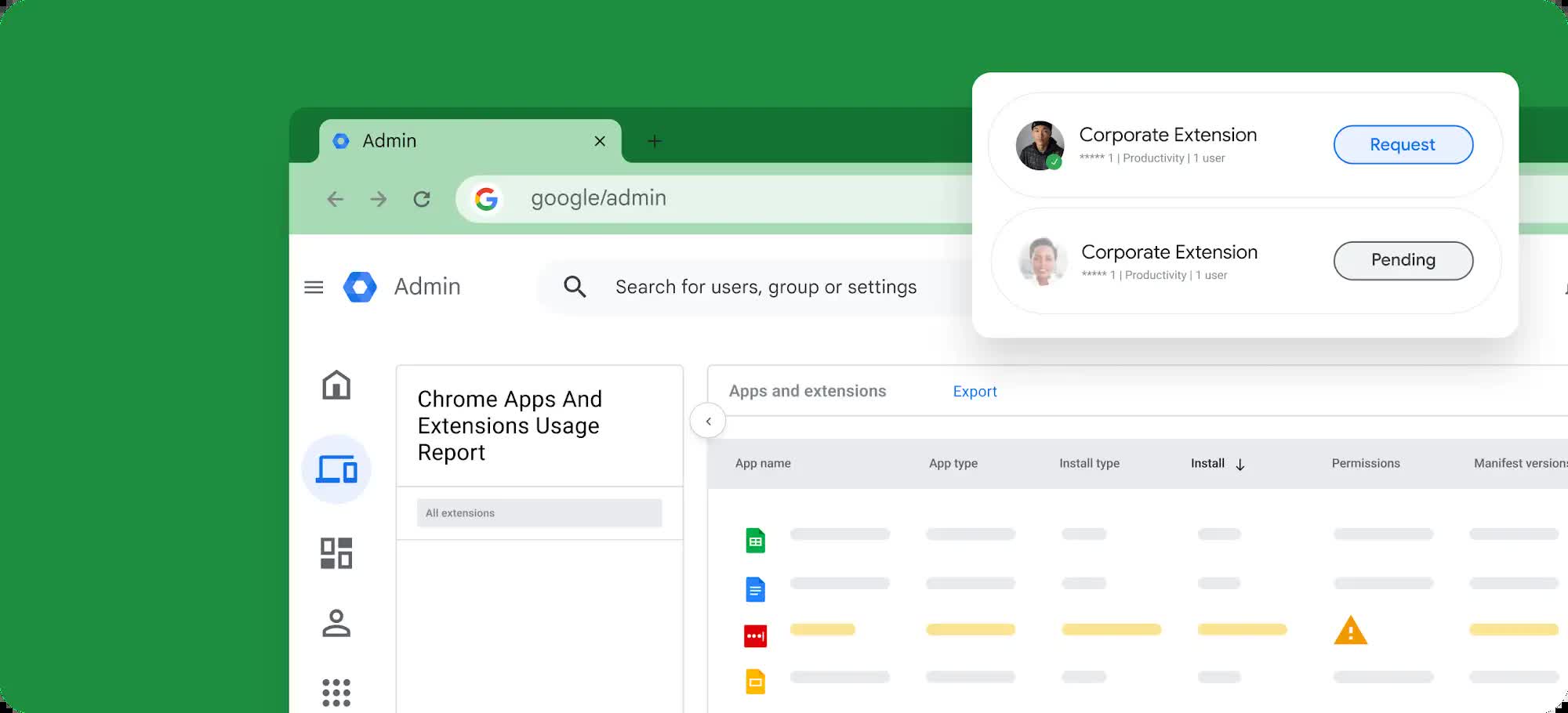What just happened? Google has announced a new version of Chrome for businesses that offers several advanced security protections. An extension of its Chrome Enterprise suite, Chrome Enterprise Premium adds plenty of new bells and whistles that should appeal to organizations willing to pay the monthly subscription.
Announced by Google at its Cloud Next conference in Las Vegas, Chrome Enterprise Premium is a top-tier, paid-for version of Chrome Enterprise, which has been around since 2017.
Google calls the new browser an evolution of the original Chrome Enterprise. That version is now called Chrome Enterprise Core and remains free to use. The latest iteration primarily focuses on improving endpoint security while building on the Core browser’s features, such as management tools for company IT and security departments.
Some of Chrome Enterprise Premium’s new security capabilities include enterprise controls for enforcing policies, managing software updates and extensions, and support for TCP protocols such as RDP, SCP, and SSH.
Parisa Tabriz, VP of Chrome, writes that Chrome Enterprise Premium offers security insights and reporting such as forensic capabilities for enterprise-wide visibility. There are also context-aware access controls that can be scaled for web applications and help enforce zero-trust access to cloud applications.
The biggest element that Google is emphasizing with Chrome Enterprise Premium is its threat and data protection features. The new browser offers content and data-loss prevention, dynamic URL filtering, and site categorization. There has to be some artificial intelligence thrown into the mix, of course: Google says AI is used for anti-malware and anti-phishing purposes.
Interestingly, a separate product page for Chrome Enterprise Premium includes a quote from Nick Reva, Head of Corporate Security Engineering at Snap. He highlights the need to protect against sharing sensitive information in generative AI platforms, something that is banned by many companies.
“We set up DLP [data loss prevention] restrictions and warnings for sharing sensitive information in applications like generative AI platforms and noticed a noteworthy 50 percent reduction in content transfers,” Reva said.
Google cites Gartner on its announcement page, noting how the analyst firm predicts that enterprise browsers will become the core platform for delivering workforce productivity and security software on managed and unmanaged devices. Gartner’s report adds that by 2030, the browser will become a platform from which enterprises can distribute software, collect intelligence, control access and securely enable remote work
Unlike the standard edition, Chrome Enterprise Premium isn’t free. It costs $6 per user per month and is generally available now.



